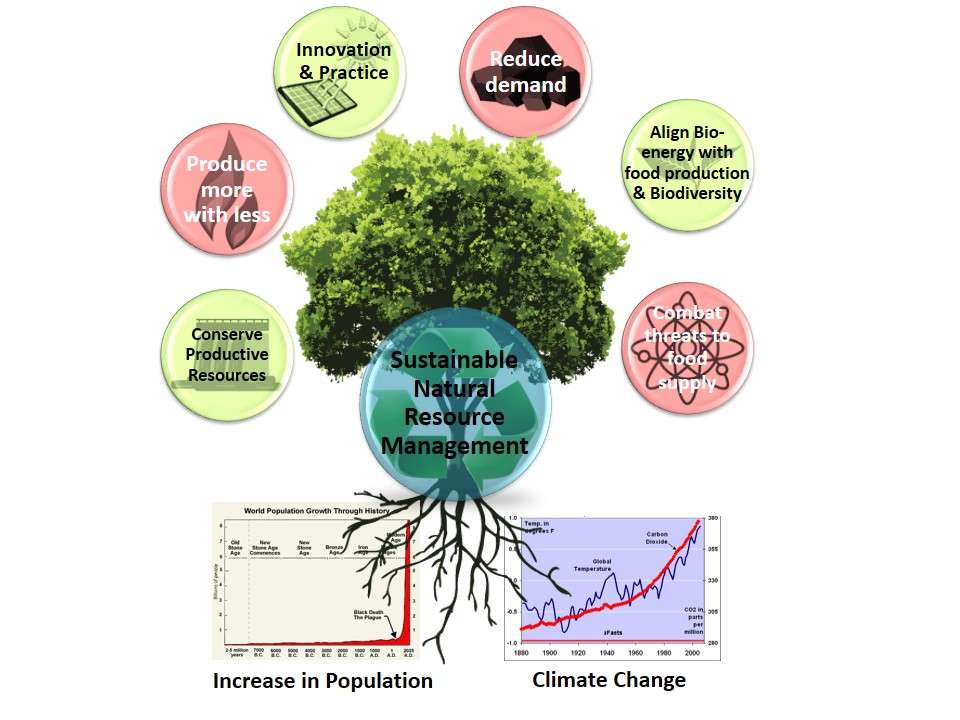
Sustainable management of natural resources is an urgent need of the present society to provide resources to upcoming generations. Depletion of one natural resource may change the scenario of other available resources since all the resources are dependent on each other. For example, water shortage due to the depletion of green cover since more than 50% of drinking water originates in the forest.
Hence, an integrated approach to managing resources is crucial for sustaining all the natural gifts given to us. Sustainable natural resources management requires comprehensive approaches including good health of an ecosystem and healthy livelihood of human population. These approaches vary on many factors including the present scenario of resources, and environmental and socio-economic conditions. Based on the literature, the following sustainable approaches are crucial to managing natural resources.

1. Conserve productive natural resources
Simultaneous conservation of all natural resources will not be feasible due to economic constraints. On the other hand, ranking based on the nation’s economic feasibility is impossible due to the complex correlation between various resources. The productive resources including agricultural lands, water supplies, soil, infrastructure, and a skilled workforce are crucial for development. Therefore, conservation priority should be productive resources to maintain a sustainable basis.
2. Produce more with less
The transfer of technological advancement from the originating nation to the needy ones for high yield with less input of resources is one of the important steps to reduce resource demand. For example, agricultural practices with improved economic efficiency and environmental cost by using fewer chemical fertilizers and pesticides are well-reported in many nations.
3. Innovation and practice
Innovations in biotechnology, nanotechnology, and plasma science and their best practices will help stay globally competitive in the sustainable production of goods and services. Industrial participation in innovation and technology transfer will play a major role in sustaining the natural resources for the upcoming generations.
4. Reduce demand for natural resources
More than 80% of chronic toxicity is because of our food habits and lack of exercise in our daily routine. Therefore. more clinical developments are required to treat the chronic disorder resulting in more pressure on natural resources. On the other hand, food demand reduction throughout the food chain is important in managing natural resources. This is achievable by changing eating habits and by avoiding food wastage. Some food production requires more economic and environmental costs such as meat, eggs, fish, and dairy. Therefore, adopting more vegan or vegetarian food is crucial to reducing the ecological footprint. At the same time, balancing the nutritional requirements of the people is important to maintain healthy well-being.
5. Align Bio-energy with food productivity and Biodiversity
Production and usage of bio-energy are crucial to minimizing the dependency on non-renewable natural resources such as fossil fuels. Agricultural waste and algal biomass use with wastewater will be a win-win situation for cleaner bio-energy production and the environment. Therefore, minimizing the overall load on food crops and water demand will be crucial.
6. Combat threats to the food supply
Threats to the food supply are one of the major challenges in the world due to climate change, population beyond the carrying capacity, and the misuse of resources. For example, >30% of the food produced for human consumption (Approx. 1.3 billion tonnes) is wasted or lost. These threats are like a fast-growing poison to our society. Therefore it needs to be tackled on an urgent basis to manage resources on a sustainable basis.

